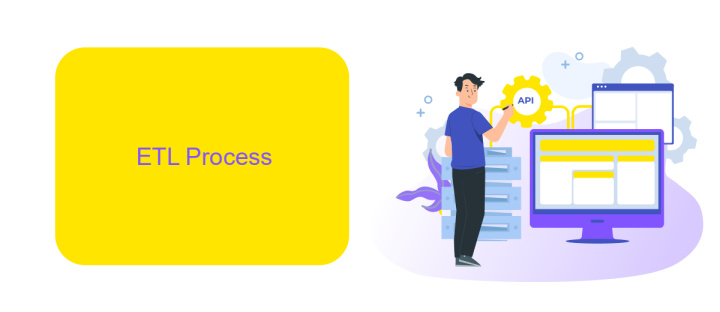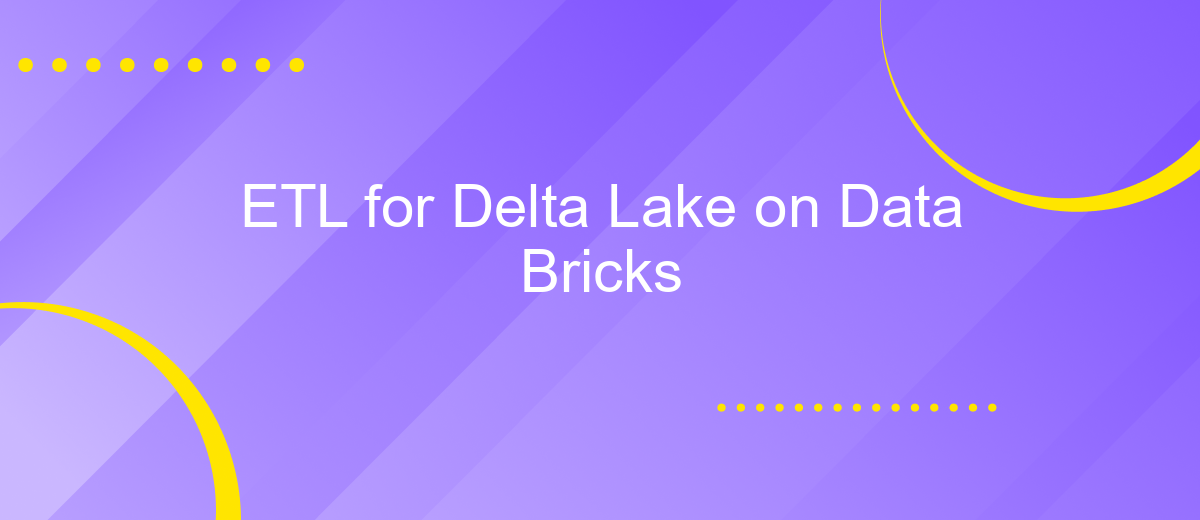ETL for Delta Lake on Data Bricks
ETL (Extract, Transform, Load) processes are crucial for managing and analyzing large datasets. Delta Lake on Databricks offers a robust solution for these tasks, combining the reliability of data lakes with the performance of data warehouses. This article explores how to efficiently implement ETL workflows using Delta Lake on Databricks, ensuring data integrity and optimizing query performance.
Introduction
ETL (Extract, Transform, Load) processes are critical for managing and analyzing large datasets. Delta Lake on Databricks offers a robust platform for implementing these ETL pipelines, ensuring data reliability and performance optimization. By integrating Delta Lake with Databricks, organizations can streamline their data workflows and achieve real-time data processing capabilities.
- Improved data reliability and consistency
- Enhanced performance for large-scale data operations
- Seamless integration with existing data tools and platforms
Setting up ETL pipelines on Delta Lake within Databricks is straightforward and can be further enhanced with integration services like ApiX-Drive. ApiX-Drive simplifies the connection between various data sources and destinations, automating data transfers and ensuring smooth data flow. This combination allows businesses to focus on data analysis and decision-making rather than the complexities of data management.
ETL Process

The ETL process for Delta Lake on Databricks involves three key stages: Extract, Transform, and Load. During the extraction phase, data is gathered from various sources, such as databases, APIs, and file systems. Tools like ApiX-Drive can simplify this process by enabling seamless integration with multiple data sources, ensuring that data is collected efficiently and accurately. Once the data is extracted, it is then staged in a raw format within Delta Lake.
In the transformation phase, the raw data undergoes a series of cleansing, enrichment, and normalization steps to convert it into a structured format suitable for analysis. This stage often involves the use of Databricks' powerful Spark engine to execute complex transformations at scale. Finally, in the loading phase, the transformed data is written back into Delta Lake, where it is stored in optimized Parquet format. This ensures high performance for subsequent querying and analysis, leveraging Delta Lake's ACID compliance and scalable architecture.
Delta Lake on Data Bricks

Delta Lake on Data Bricks is a powerful tool for managing big data workloads. It provides ACID transactions, scalable metadata handling, and unifies streaming and batch data processing. This makes it an ideal solution for data engineers and analysts who need to ensure data consistency and reliability.
- Enhanced Data Reliability: Delta Lake ensures data reliability through ACID transactions.
- Scalable Metadata Handling: Efficiently manages metadata to handle large-scale data workloads.
- Unified Data Processing: Seamlessly integrates both streaming and batch data processing.
Integrating Delta Lake with other services can further enhance its capabilities. For instance, using ApiX-Drive, you can automate data workflows and integrate various APIs without coding. This allows for more streamlined data ingestion and processing, making your data pipeline more efficient and less error-prone. By leveraging these tools, you can maximize the potential of Delta Lake on Data Bricks, ensuring a robust and scalable data infrastructure.
Benefits and Use Cases

ETL for Delta Lake on Data Bricks offers numerous advantages for data engineering and analytics. By leveraging the power of Delta Lake, organizations can ensure data reliability, consistency, and performance, which are crucial for making informed business decisions.
One of the key benefits is the ability to handle large volumes of data efficiently. Delta Lake's ACID transactions and scalable architecture make it an ideal choice for enterprises dealing with big data. Additionally, it simplifies data management by providing features like schema enforcement and data versioning.
- Improved data quality and reliability
- Scalable and efficient data processing
- Enhanced data management capabilities
- Support for real-time data analytics
Use cases for ETL with Delta Lake on Data Bricks span various industries. For instance, financial institutions can use it for fraud detection and risk management, while e-commerce companies can optimize their recommendation engines. Moreover, integrating with services like ApiX-Drive can streamline the process of connecting various data sources, further enhancing the ETL workflow.
- Automate the work of an online store or landing
- Empower through integration
- Don't spend money on programmers and integrators
- Save time by automating routine tasks
Conclusion
In conclusion, implementing ETL processes for Delta Lake on Databricks offers significant advantages in terms of scalability, reliability, and performance. By leveraging the robust capabilities of Databricks, organizations can efficiently manage and process large volumes of data, ensuring that it is clean, accurate, and readily available for analysis. Delta Lake's ACID transactions and schema enforcement further enhance data integrity and consistency, making it a valuable asset for any data-driven enterprise.
Moreover, integrating ETL workflows with tools like ApiX-Drive can streamline the process even further. ApiX-Drive provides seamless connectivity between various data sources and Databricks, automating data transfers and transformations with minimal manual intervention. This not only reduces the complexity of managing ETL pipelines but also accelerates the time-to-insight, enabling businesses to make data-driven decisions more rapidly. Overall, combining Databricks, Delta Lake, and ApiX-Drive represents a powerful approach to modern data engineering.
FAQ
What is Delta Lake and how does it integrate with Databricks?
How can I perform ETL operations on Delta Lake using Databricks?
What are the benefits of using Delta Lake for ETL processes?
How can I automate ETL workflows in Databricks with Delta Lake?
What are some best practices for managing Delta Lake tables in Databricks?
Time is the most valuable resource for business today. Almost half of it is wasted on routine tasks. Your employees are constantly forced to perform monotonous tasks that are difficult to classify as important and specialized. You can leave everything as it is by hiring additional employees, or you can automate most of the business processes using the ApiX-Drive online connector to get rid of unnecessary time and money expenses once and for all. The choice is yours!


